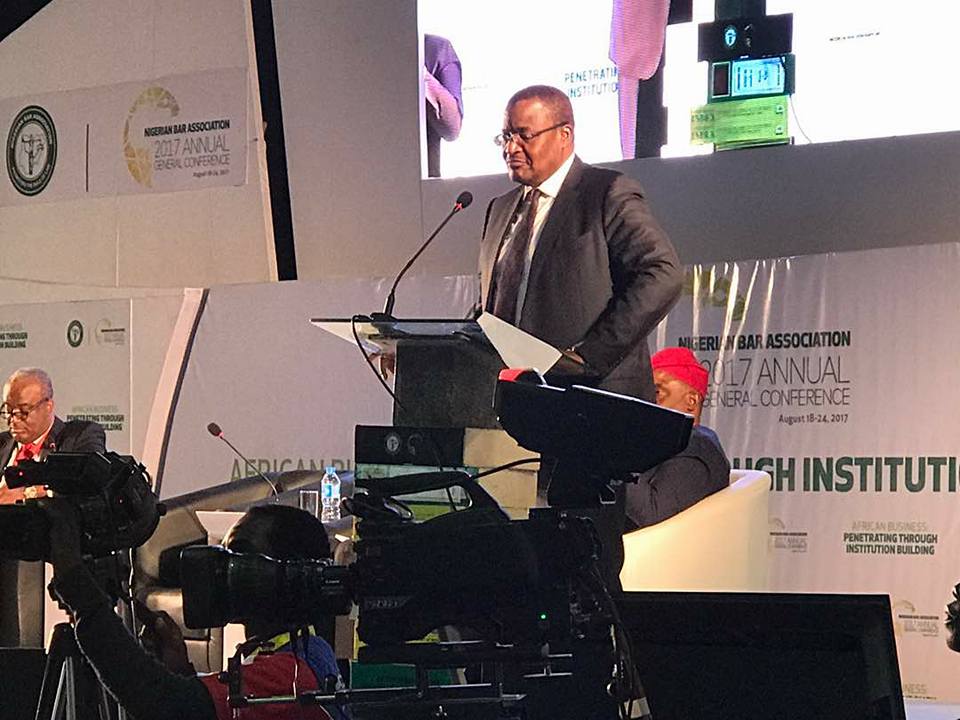By Oluwatobi Opusunju
The Executive Vice Chairman and CEO of the Nigerian Communications Commission – NCC, Professor Umar Danbatta has harped on the need for a speedy passage of a harmonized data protection law for Nigeria to safeguard citizens from identity theft and unauthorized use of personal information.
Nigeria lost N127 billion to cybercrime in 2015, ranking third highest after United States and the United Kingdom, despite the provisions of extant laws and regulations, including initiatives and interventions by NCC and other agencies in the ICT and other sectors. According to Danbatta, a harmonized data protection law has become imperative as cybercrime gains in sophistication and spread.
Danbatta spoke as a panelist at the ongoing Nigerian Bar Association (NBA) Annual General Conference (AGC) in Lagos, in a paper titled: “The Business of Cyber Law, Internet Policy and Privacy Rights.”
Nigeria’s chief telecom regulator warned that the huge amount of data generated through the electronic systems in the ICT and telecoms sector is capable of creating an array of unique problems, which include storage loss, identity theft, web attacks, and unlawful use of personal information, among other problems.
Data protection laws, however, are passed into law as legal framework to strike a balance between the rights of individuals to privacy and the ability of companies to use data for the purposes of their business as well as protect consumers from unauthorized use of personal information, loss of information or fraudulent use of same.
Unfortunately, despite repeated calls by industry stakeholders for its enactment, Nigeria still does not have a specific or comprehensive data protection law comparable to other countries like South Africa, India, and the United Kingdom.
He tasked stakeholders to make Nigeria move faster and steadily in the journey for cyber security and protection of privacy rights under the cyber law. “The rapid developments in the ICT sector and the attendant challenges of security and privacy rights demand greater collaboration of all stakeholders to deal with all threats,” Dabatta said.
He recommended data end-to-end encryption and back up; as well as the strengthening of the capacity of agencies in the security sector and in the administration of justice to monitor and enforce the existing laws.
































